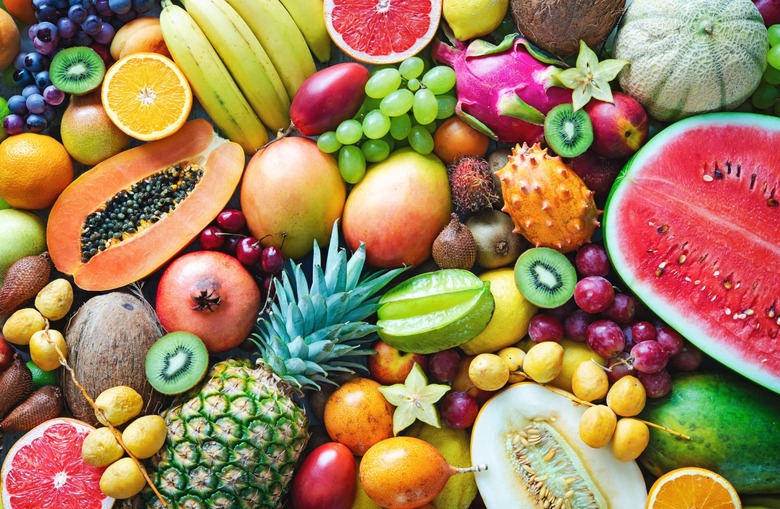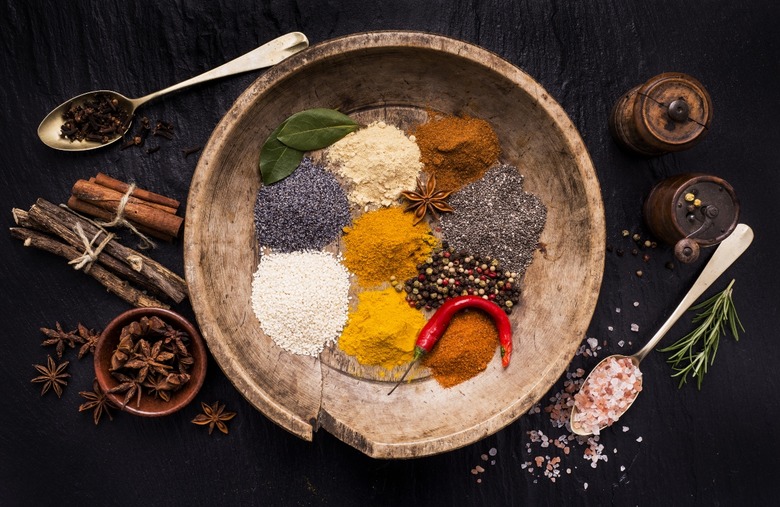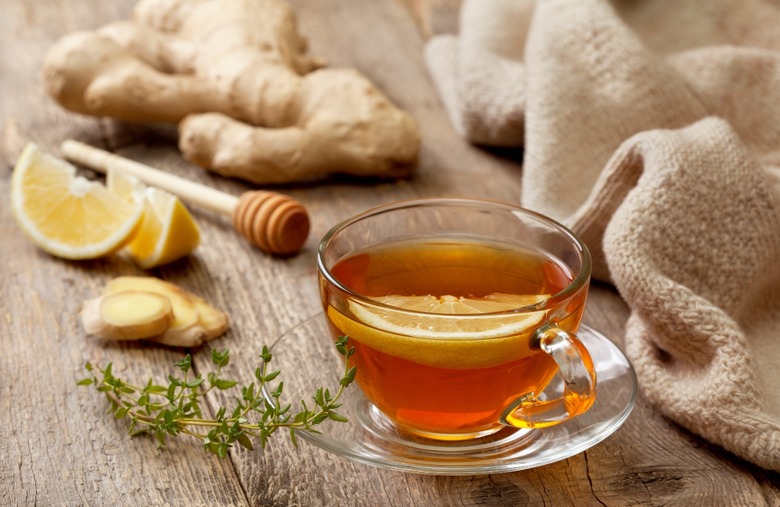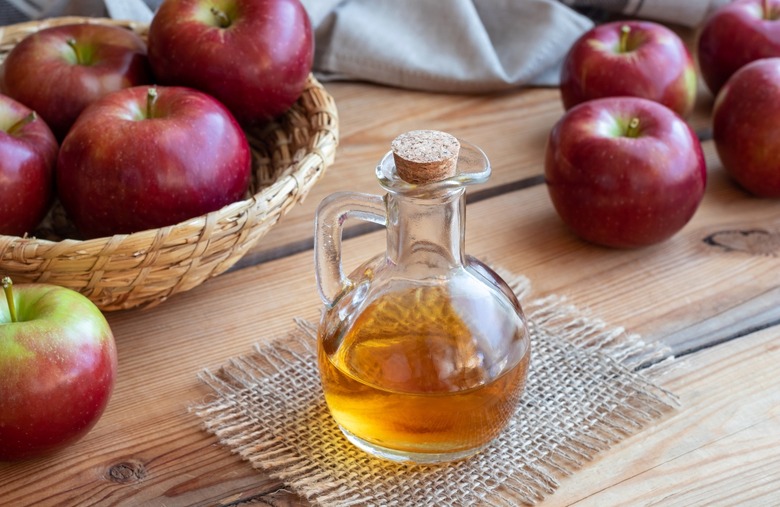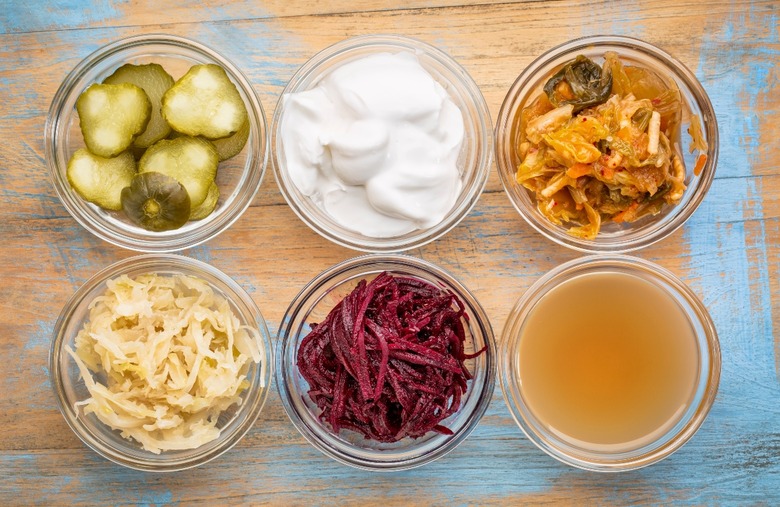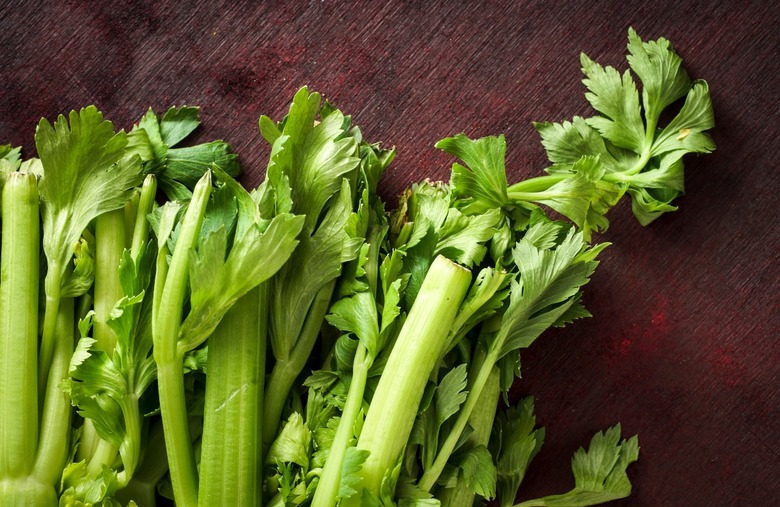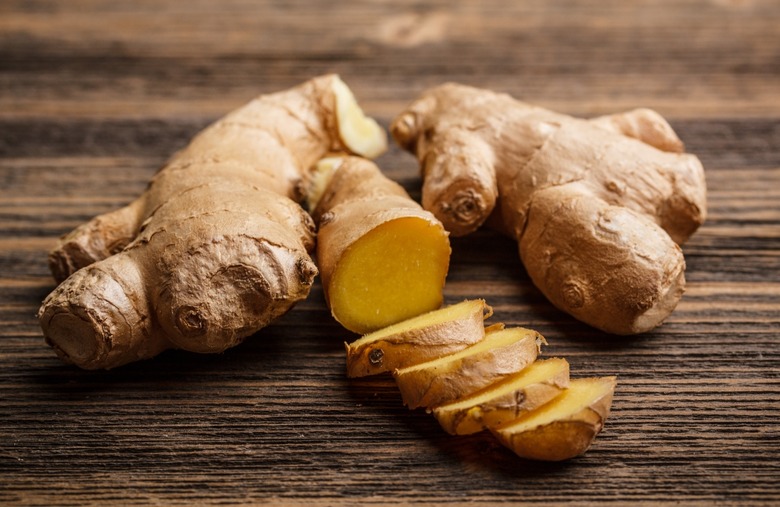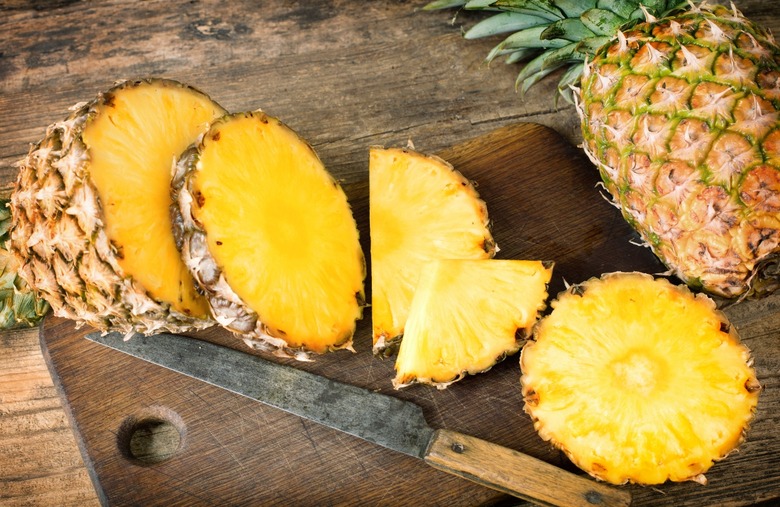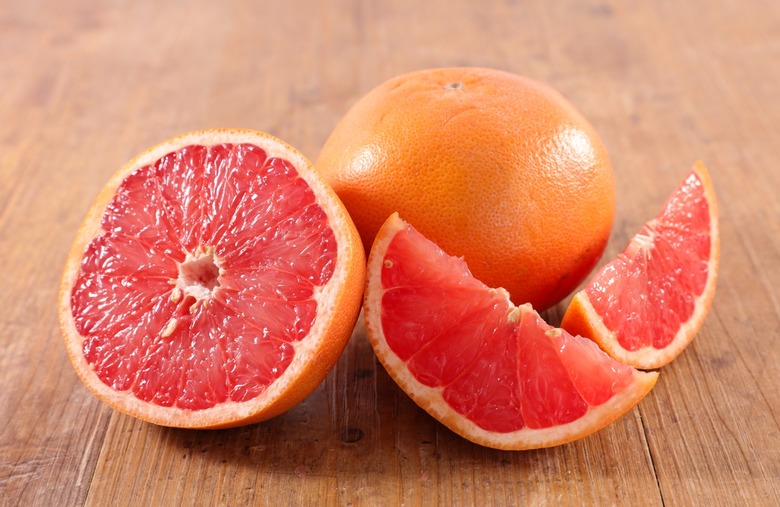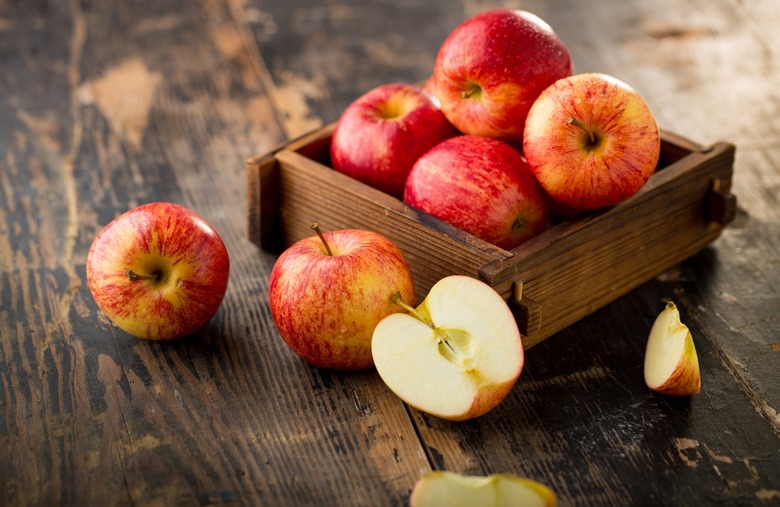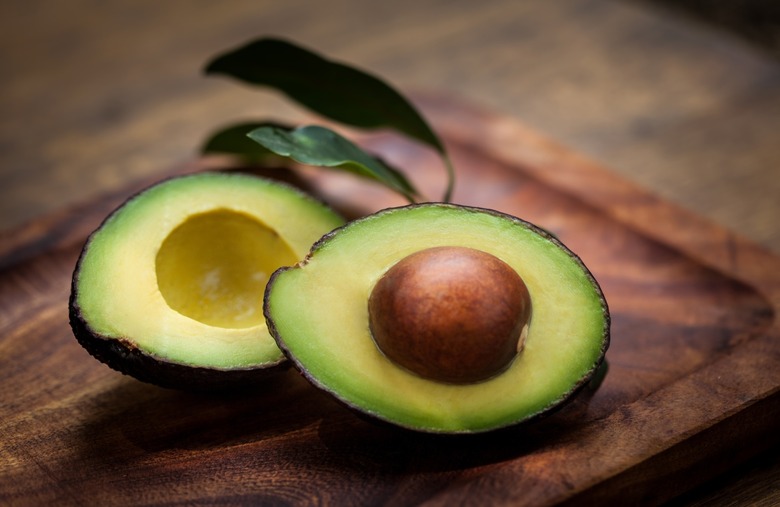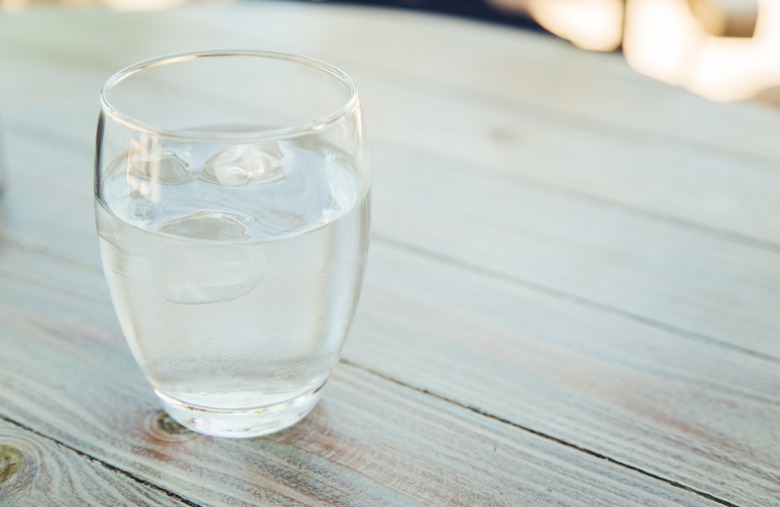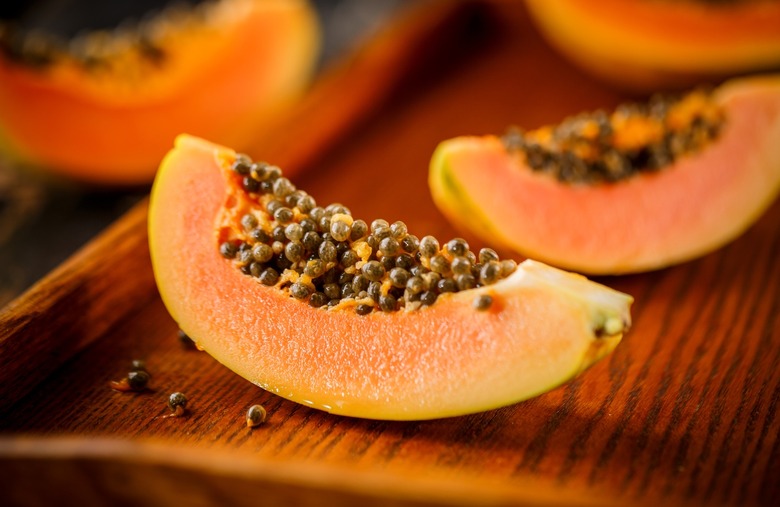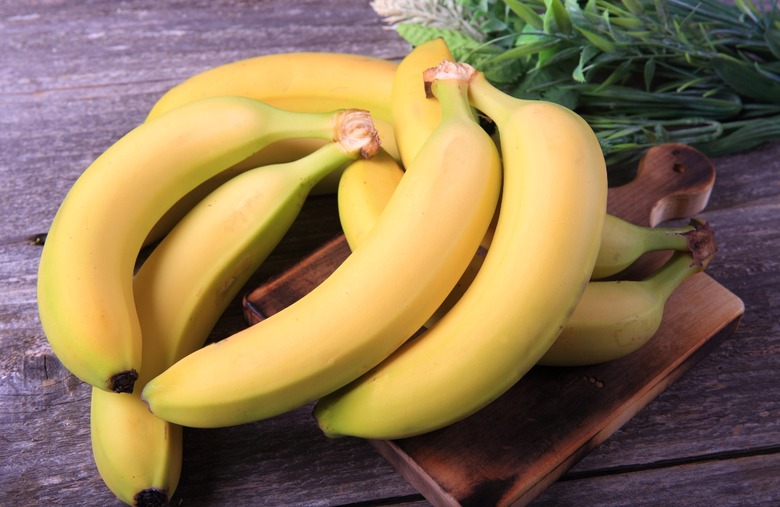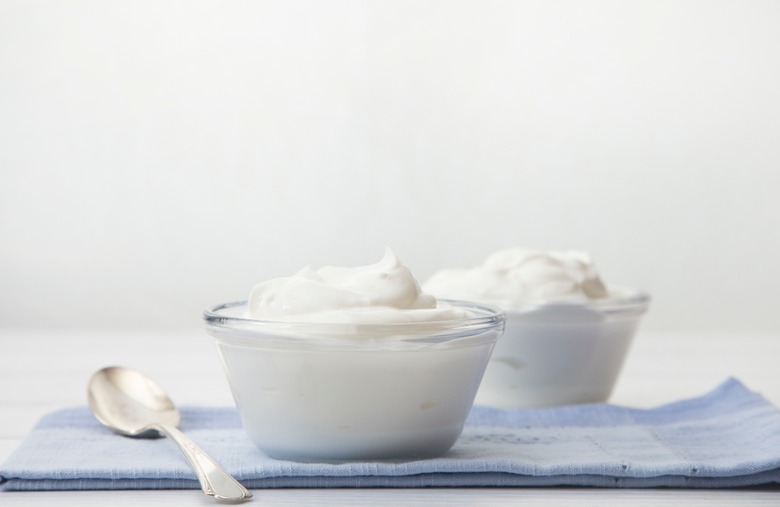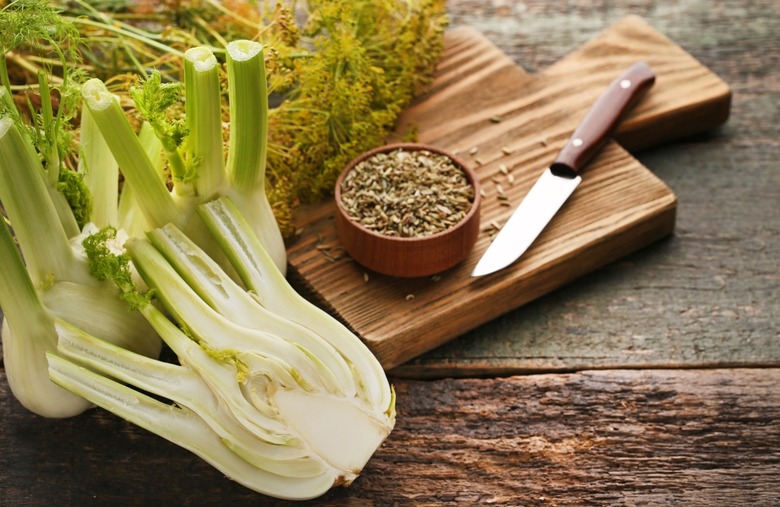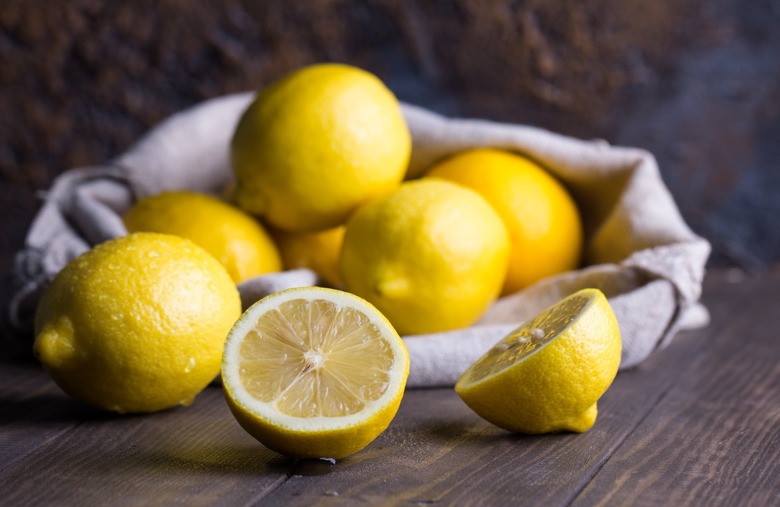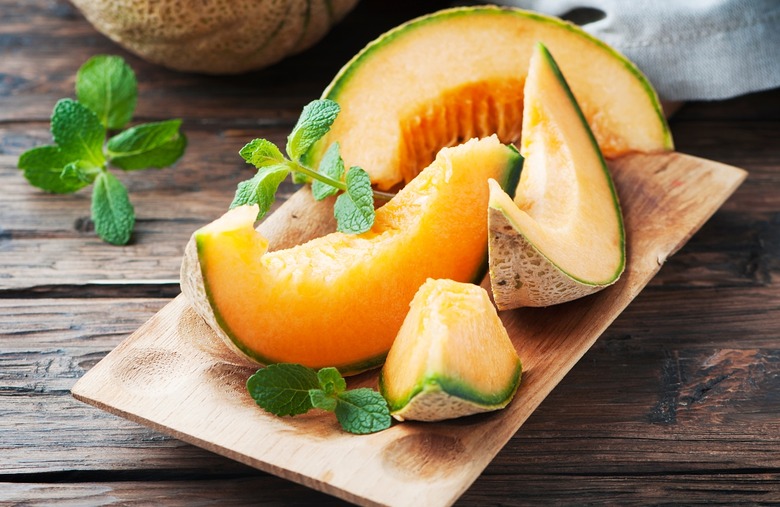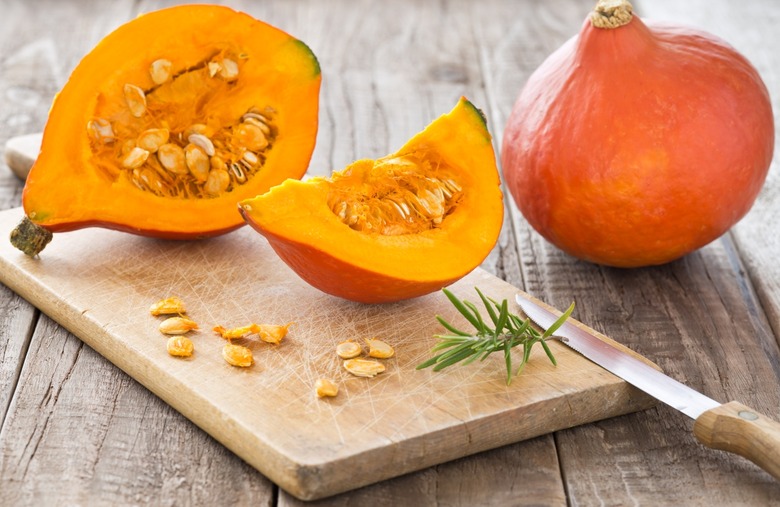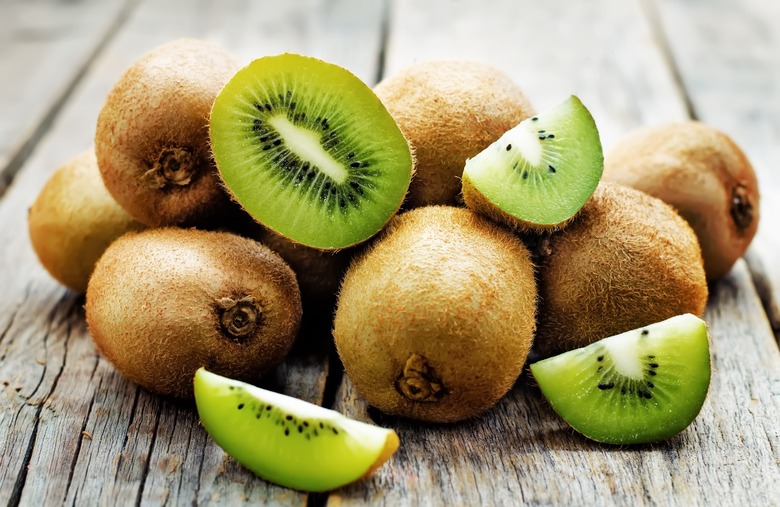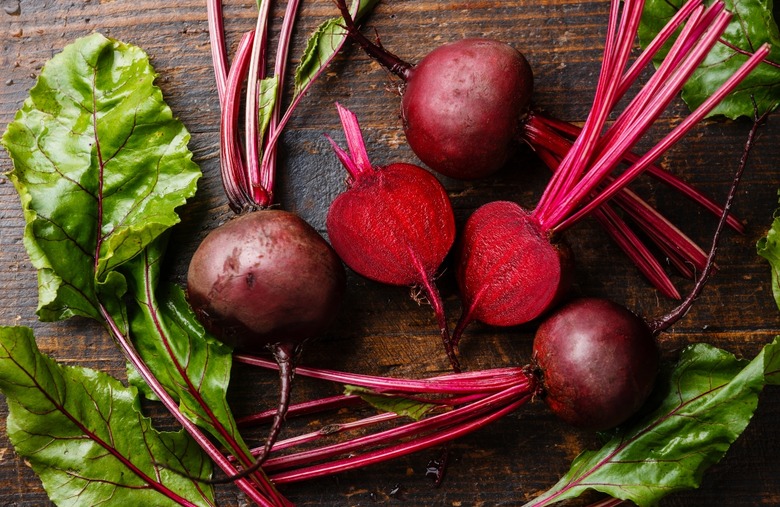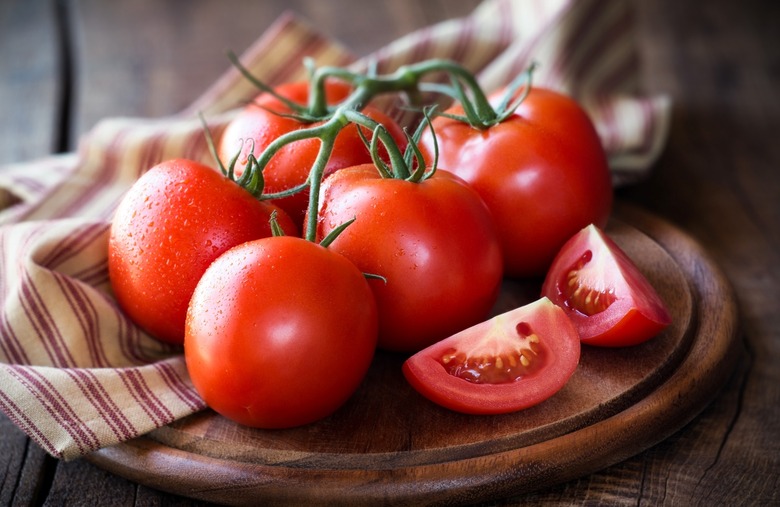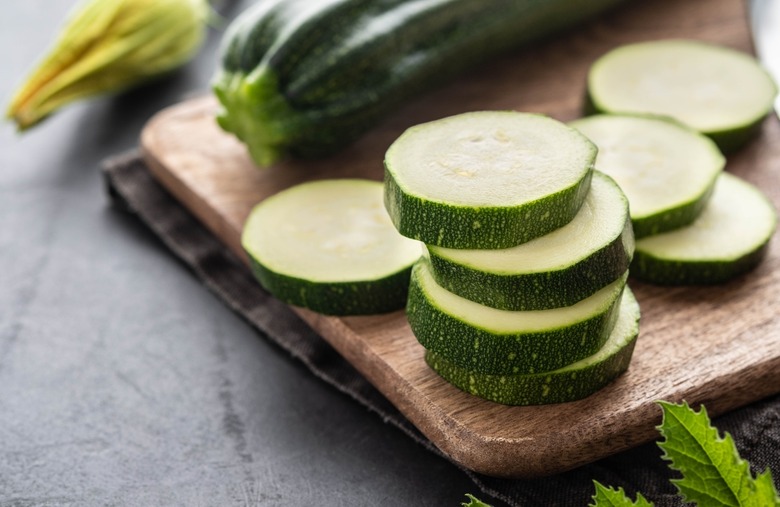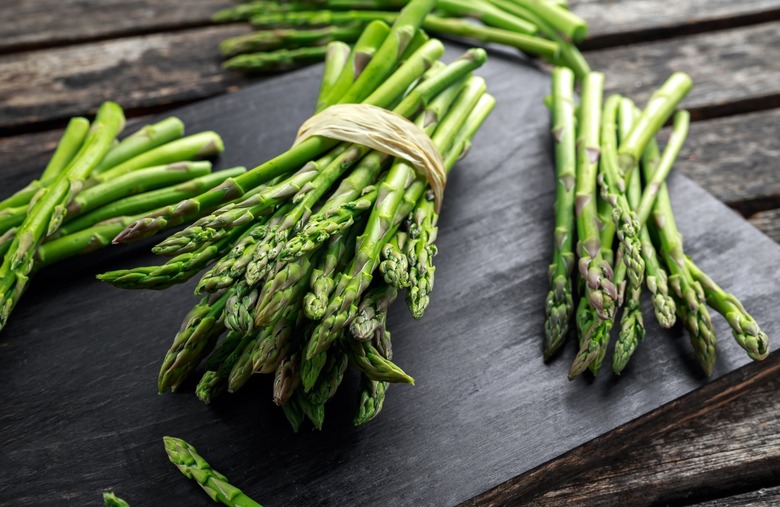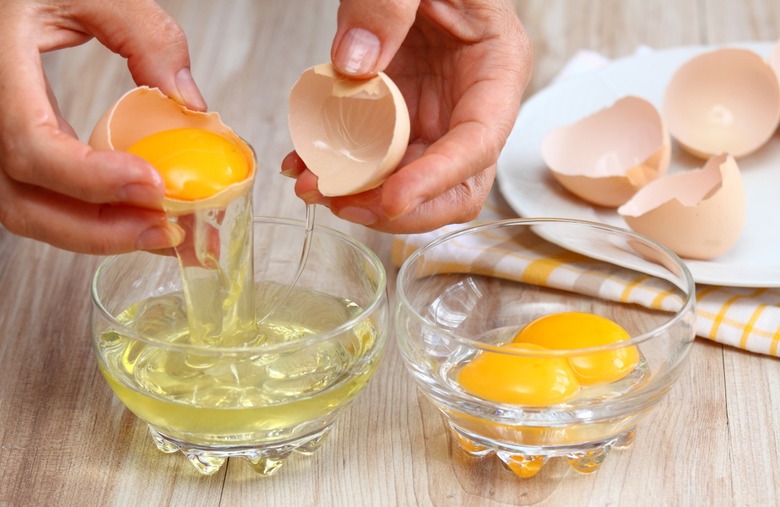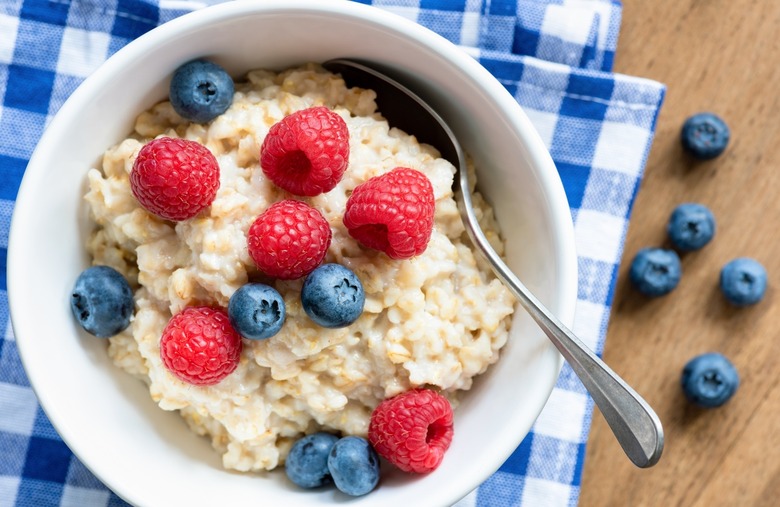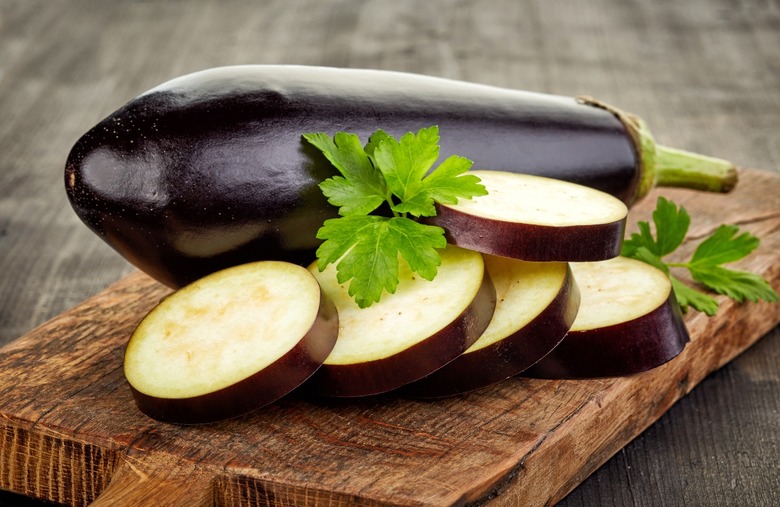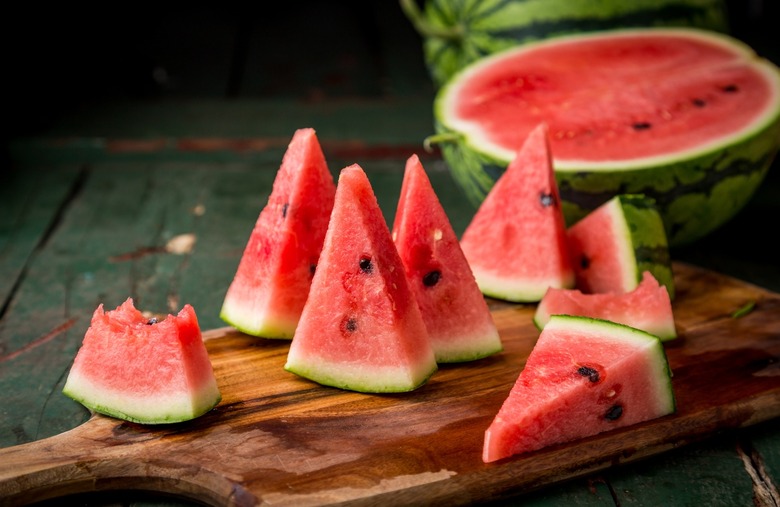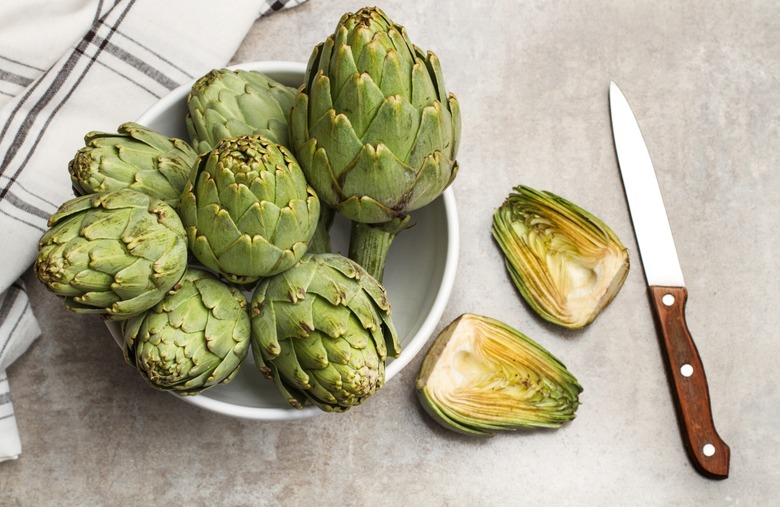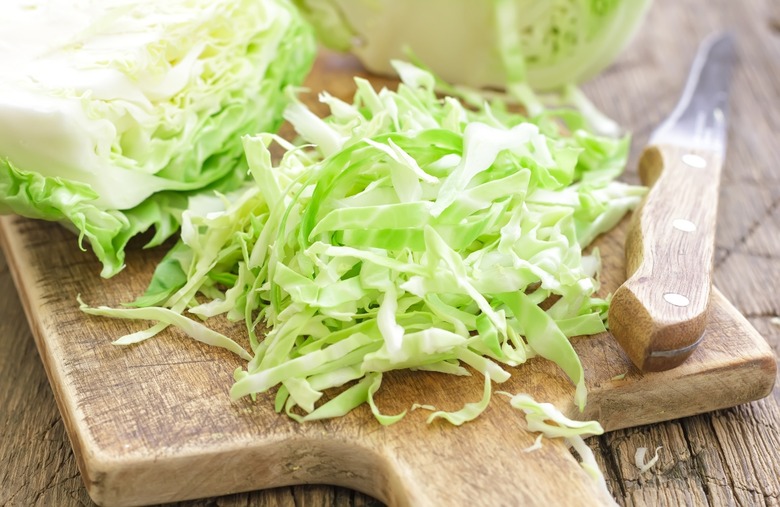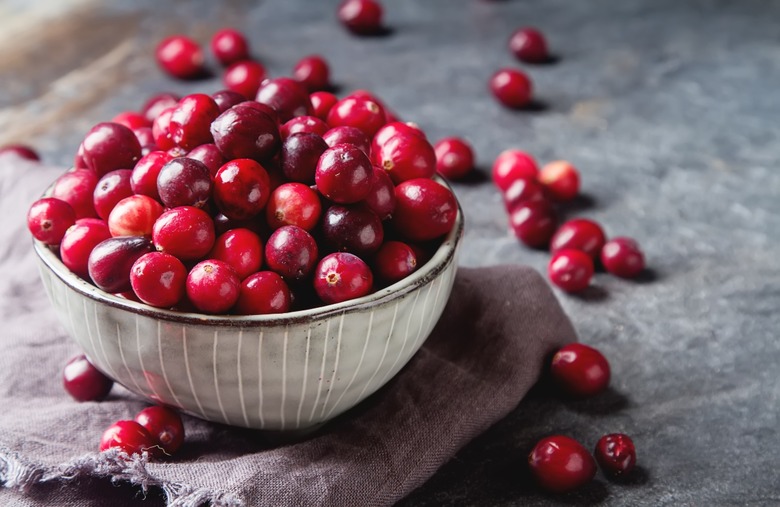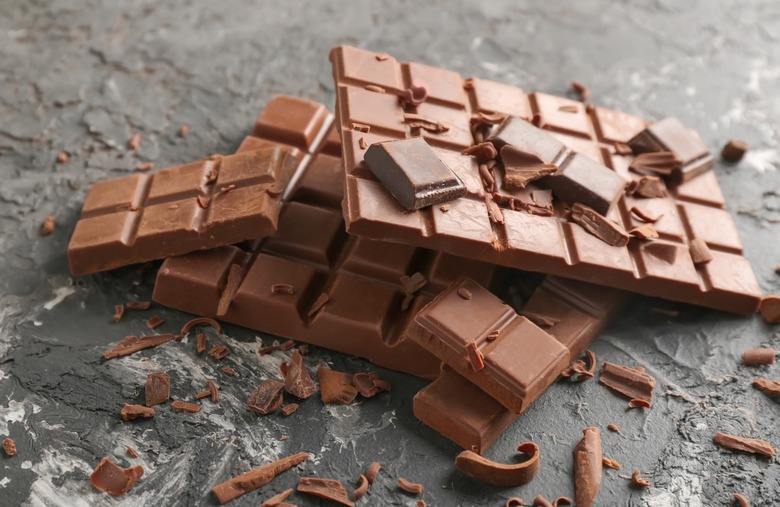32 Foods That Help Fight Bloat
Thanksgiving isn't the only day of the year that we have to loosen our pants after eating. People can get bloated for different reasons, such as stress, an imbalance of gut bacteria, food intolerances or even chronic illnesses like Crohn's disease. While bloating is typically not a cause for concern, it can be highly uncomfortable. The cool thing is that sometimes all it takes is a slight change in diet to relieve painful, protruding bellies.
Abdominal bloating is caused by excess air and gas trapped in the intestines. This can cause unpleasant side effects like excessive belching and flatulence, nausea and the dire urge to have a bowel movement. Unless you have an underlying health concern, you can help avoid the above symptoms by incorporating these 32 foods that fight bloat into your diet.
Spices
Adding black pepper, turmeric and cumin to recipes will help stimulate digestion, according to registered nutritional therapist Fiona Lawson. These spices will stimulate the liver to secrete highly acidic bile important for digesting fat and absorbing nutrients. They can also increase the functionality of pancreatic lipase, protease and amylase. These enzymes aid in metabolism and digestion. A happy gastrointestinal tract allows less time for water to be absorbed from digested food and reduces your risk of becoming constipated and bloated.
Herbal tea
If you're looking for teas that settle stomach discomfort, go herbal. Herbal teas can relieve bloating caused by a variety of triggers. Peppermint is often used to soothe aching tummies after a meal because it relaxes the gut and relieves intestinal spasms, which could trigger bloating. Another popular herbal tea is chamomile, which is often used to soothe nausea, indigestion, gas and bacterial infections that increase the likeliness of a protruding midsection.
Apple cider vinegar
Lawson also suggests apple cider vinegar to support stomach acid production and enhance digestion. You can add this pantry staple to warm water or a smoothie, mix it with healthy salad dressings or mayo-based condiments, or use it as a partial glaze for vegetables and fish.
Fermented food
Lawson points to sauerkraut, kimchi and sour pickles as stomach-happy fermented foods. All contain natural probiotics that support good gut bacteria. Healthy gut bacteria line the entire digestive system (most are in the intestines and colon), and help us to break down food and absorb nutrients.
Celery
This crunchy, hydrating vegetable has diuretic properties, meaning it will make you urinate a lot and, in turn, flush out excess water and sodium. Celery is a great source for fiber, and has antioxidants and anti-inflammatory nutrients that protect the GI tract and keep you regular.
Ginger
Ginger is an anti-inflammatory food that works wonders for bloating. Grate it into your favorite meat marinade, a healthy stir fry or atop a piece of fish.
Pineapple
This tropical fruit contains bromelain, which promotes digestion enzymes that help deflate bloated bellies.
Grapefruit
Grapefruit is 90 percent water. Because it's so hydrating, it encourages your body to release excess water and sodium.
Apples
Apples are jam-packed with naturally occurring fiber, which helps regulate digestion. This slows the absorption of carbohydrates and provides more sustained energy levels, according to registered dietitian nutritionist Rachel Fine. "I often recommend that clients add apples as a part of a balanced snack, pairing with nut or seed butter for optimal balance," she said.
Avocados
Are you ready for something you may not know about avocados? This favorite food is a rich source of potassium. Potassium helps balance the body's electrolytes to counteract excess sodium, which can cause bloating, Fine said. As an added plus, avocados are high in the "good for you" type of fat (monounsaturated), which promotes heart health.
Water
Water obviously isn't a food, but it's just as important as any other item on this list, if not more so. If you don't get enough water, you can become constipated, among other undesirable side effects. "Fluid keeps things moving in the gastrointestinal tract so that you can go when you need to," registered dietitian Amanda A. Kostro Miller said. Just don't overdo it, because there is such a thing as drinking too much water.
Papayas
Papayas contain the enzyme papain, which helps break down proteins in your digestive system, encouraging a healthy digestion process. On top of that, this fruit has a lot of fiber, which aids digestion and fights inflammation to reduce bloating.
Bananas
Not only do bananas contain soluble fiber, which helps to keep your bowels moving regularly and as a result reduce bloating, they are high in potassium. Potassium will help balance the sodium in your body and prevent that dreaded water retention.
Greek yogurt
Greek yogurt is rich in probiotics, which are great for the digestive tract and gut bacteria.
Fennel
Fennel is a natural diuretic with anti-inflammatory properties that relax muscles in the intestines, speed digestion and relieve gas buildup. It's rich in fiber, which helps build healthy stool and prevent uncomfortable bowel movements. It also has antibacterial benefits (thanks to an organic compound called anethole) that fight gassiness, cramping and nause
Lemon
Avoiding a bloated belly can be as simple as adding lemon to your water. Citrus has a similar acidity to the acid in your stomach, which can improve the function of the GI tract and alleviate symptoms of bloating and indigestion.
Cantaloupe
Similar to grapefruit, cantaloupe is 89 percent water, so eating this is almost equivalent to drinking H2O. Cantaloupe is a potassium-rich natural diuretic that will help you urinate more and flush sodium from your body after you've overindulged in cheese, hot dogs or any of these other foods you didn't know are loaded with salt.
Pumpkin
There's a ton of fiber and potassium in pumpkin, and both nutrients aid the digestive process so that everything moves along comfortably and quickly. Pumpkin also contains a significant amount of vitamin A, which reduces inflammation, and prebiotics, which contribute to healthy gut bacteria. If it's a flat abdomen you're looking for, skip the pumpkin spice latte and make something fresh instead.
Kiwi
This teensy green fruit contains an enzyme called actinidin, which breaks down gas-causing protein in your stomach. Kiwis also have an ample amount of potassium, which helps regulate sodium levels, and fiber, which prevents you from getting backed-up and bloated.
Beets
The fiber in beets helps build healthy stool and feed good gut bacteria, making it smooth sailing for everything moving along your GI tract. The root vegetable also contains potassium, which counteracts sodium and diminishes salt-related bloating. Salad, anyone?
Tomatoes
Tomatoes are another potassium-packed food that helps the body regulate belly-busting sodium content. Luckily, this veggie is so versatile you can practically make anything with it, from salads to salsa.
Zucchini
Zucchini is another hydrating, potassium-dense food that pushes toxins and extra fluid from your body. It's full of dietary fiber, which works to prevent constipation. No wonder zoodles are all the rage.
Asparagus
Asparagus is chock-full of fiber that puts you at lower risk for getting all backed up. It also contains an amino acid called asparagine which helps reduce swelling and water retention.
Egg whites
It's easy to make a quick meal from egg whites. They only contain a very small amount of fat (most fat in eggs comes from the yolk), so it's easy for your body to digest. A quick digestion time gives your meal less time to sit in your gut, where your body could start to pull water from your food, putting you at higher risk for constipation and bloating. Make an omelet with veggies mentioned in this list to start your day bloat-free.
Oatmeal
Plain oats have a ton of fiber, half of which is soluble. When this soluble fiber merges with water, it forms a gel that delays the digestion of sugar and gives more time for vitamins and minerals to be absorbed. The remaining insoluble fiber encourages perfectly soft stool and regular bowel movements.
Cucumbers
Cucumbers are a water-heavy vegetable, so eating them will assist in flushing out sodium and with it any water weight the body is retaining. Cucumbers are also high in potassium, which helps counteract the ill effects of sodium, including uncomfortable bloating.
Eggplant
This big purple vegetable is low in sodium and high in water, creating a diuretic effect on the body. Eggplant helps rid water and salt (both are known to cause belly bloat) and because of its high fiber content, it encourages regular bowel movements.
Watermelon
It's all in a name. The refreshing, summertime-favorite watermelon is 91 percent H2O, and is one of the most hydrating foods out there. Watermelon helps your body get rid of water and sodium that might be making you puffy. Because watermelon is packed with fiber, it works to promote healthy digestion and prevents gas and constipation.
Artichoke
Artichokes contain a substantial amount of fiber. This keeps you feeling full and gets things moving along through your GI tract by encouraging healthy gut bacteria and alleviating constipation. This veggie also features a naturally occurring compound called cynarin, which stimulates bile production, speeds up the digestion process and improves the absorption of certain fats.
Cabbage
Your parents may have tried the cabbage soup diet back in the day, and while we don't recommend subscribing to this trend, eating cabbage as part of a meal could disperse water weight. This crop is full of fiber and has anti-inflammatory properties.
Cranberry
If you've ever had a urinary tract infection, you're well aware that cranberry juice is practically nature's tonic. Store-bought juice with added sugar and high-fructose corn syrup only contributes to bloating, though, so make sure you enjoy this small red fruit on its own, unsweetened or dried.
Chocolate
Unfortunately, sweet treats made by your favorite candy brands might trigger bloating, but if you stick to dark chocolate made with at least 70 percent cacao, your midsection will thank you. Dark chocolate is a good source of fiber and polyphenols, both of which alleviate gas and support healthy gut bacteria. Eating foods that are good for your GI tract affects not only your belly, but your mental health too. Here are some of the health impacts of these bacteria and the best foods to help improve your overall gut health.
More from The Daily Meal:
50 Foods That Lower Your Risk of Cancer
Diet Changes You Should Make After 50
26 So-Called 'Healthy' Foods You Should Avoid
